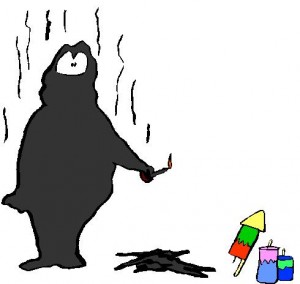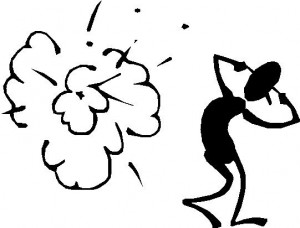Having been approaching this Real Fiction Writer gig for something like 25 years, from fits and starts in the early days to the full-time efforts nowadays, I have considerable experience with in-person critique groups. Sometimes they work, sometimes they don’t. There’s almost always some value, but is that overshadowed by hidden “costs”?
Critique groups have infinite permutations out there: genre, format, frequency, membership, etc. But something for new writers to keep in mind—easy to lose track of this in their exultant joy or fear that they won’t be able to find any other group—you are there to serve your writing.
You are there because you want something. Before you join, you should be clear about your goals and aspirations. After you’ve joined, reflect often on whether the group is serving your needs.
Critique groups are great for:
- Helping fix problems with stories and novels
- Exchanging industry news and opportunities
- Increasing your writing skills
- Camaraderie, community, and mental health
Benefits of Critique Groups (and their evil flip-sides)
“We meet on the fourth Tuesdays of odd-numbered months at 6 a.m. under the bridge. Bring your whole novel.”
The first criteria for determining whether a critique group is right for you is when it meets. The less easy, regular, and accessible its meeting times, the less useful it’s likely to be. I’ve tried groups that meet once a month or less, and they’re just not as useful, especially when I’m writing at a pace that a career demands. If your stuff only comes up for critique once every two or three months, ask yourself if that’s really enough for you.
- Does the group format allows critiques of what you’re bringing?
- Does the group meet often enough to form a cohesive unit? Too seldom? Too frequently?
- Is the location conducive to a safe, open atmosphere?
- What is the balance of give and take? If you have to contribute critiques on 80k words before you get to submit a single novel chapter, is that really worth your time?
Chicken Soup for the Bedraggled, Desperate, Down-trodden Writer’s Soul
Critique groups can be a great place to receive encouragement and support from fellow bedraggled, desperate, down-trodden writers. Finding your tribe for the first time can be an enormously valuable, uplifting experience. Cultivating them as friends and colleagues can reap benefits down the road as group members make some sales and advance their careers.
However, except for an infinitesimal, lightning-struck handful of the Anointed, a writing career can be best described as The Long Slog, and not everyone handles the daily reality of that with equal aplomb. Like a romantic relationship gone bad, your formerly brilliant group can devolve into a great seething swamp of bedraggled, down-trodden desperation—and suck you down with it. Jealously, resentment, and animosity can emerge in critiques, sometimes so subtly and unexpectedly that you don’t see it at first. Critiques should be honest, but also respectful and tactful. They should critique the work, not the writer. Group meetings should be a safe place for the exchange of ideas, supportive and constructive. You get enough emotional abuse from the rejection process without putting up with poison in a group of colleagues.
Balancing the Balance
One of the keys to a good critique group is that everyone should be at comparable levels of skill/career. However, that doesn’t mean you all have the same skill sets. In one of my current critique groups (I’m actually a member of two groups), two members are copyediting/language clarity vipers, another a gunslinging history expert, another with a fight choreographer’s eyes for the movement of a scene, and another with a firm grasp of a scene’s emotional landscape. This is the nature of an awesome critique group. (This group was a tremendous help in reviewing a rough early draft of Spirit of the Ronin.) Balance, Grasshopper.
However, while a broad array of skill sets is valuable, a broad disparity in skill level is not. When a group is newly formed or a new member comes in, balance can be thrown off. The give and take, the flow of feedback, needs to be roughly equal.
It can be extremely frustrating for a writer with more advanced skills and experience to critique the work of less experienced one, because she could, if she chose, pour hours of feedback into a short story where she can see the innumerable grammatical errors, punctuation problems, scene construction problems, clichés, incomprehensible plotting, false starts—the entire host of regrettable, understandable, and yet rankling newbie mistakes laid out before her like the vastness of the sea. Soon realizing this, she will wonder why, when she has insufficient time to write for herself, she’s spending so much time critiquing someone whose skills are still in the early stages. And the kind of critique that she needs—theme, rhythm, structure, nuance—is often beyond the newbie writer’s critique capabilities.
The flip-side of this for the newer writer is that the advanced writer is giving feedback that he doesn’t know how to use. He gets a manuscript back that looks dipped in the blood of a thousand red pens. And his spirit is crushed.
Building Skills Together
Another argument for joining a group of roughly similar level is that critiquing builds writing skills. It’s basic pedagogy in teaching English composition, and it’s a mainstay of the Odyssey Writing Workshop, of which I am an alumnus. Critique groups can expose your own unique writerly tics—over-description, overuse of “that” or “-ly” adverbs, underuse of plot logic—and help you fix them. Finding problems in the manuscripts of others teaches you how to find them in yours.
No one can critique to a higher level than their own set of skills. Some of the feedback from less advanced writers will be useful—all reader response is useful in some way—but in the end, the more advanced writer will be getting far less in the exchange, and the newer writer may get her manuscript bled upon with a red pen in ways that are unhelpful.
A Rising Tide Lifts All Boats
If you look deep enough, the literary world is filled with critique groups, pockets of famous writers who critique each other. George R.R. Martin, for example, is part of a long-time writers’ group that has been together for many years, and all of them are accomplished novelists. Such pockets exist everywhere, at all levels. If a group works well and remains together over years and decades, there are tremendous opportunities for members to help one another along this most difficult of creative paths. Promoting each other’s books, sharing industry information like anthology calls for submission, and “so-and-so talked to this editor who said…”
You likely won’t be able to join one of those pockets, but you just might become part of your own illustrious literary pocket.
Groups stay together because there is something about them that works for each member. Friendship, feedback, helping spackle over plot holes, giving triage to characters dying of two-dimensionality, and having some folks to thank on the Acknowledgements page of your bestselling novel. Those are the benefits.
Again, reflect on your needs and goals from a critique group and evaluate whether your group is meeting your needs. If you don’t feel like these are anywhere in sight, it might be time to move on. Or form a new group on your own.
About the Author: Travis Heermann

 Travis Heermann’s latest novel Spirit of the Ronin, was published in June, 2015.
Travis Heermann’s latest novel Spirit of the Ronin, was published in June, 2015.
Freelance writer, novelist, award-winning screenwriter, editor, poker player, poet, biker, roustabout, he is a graduate of the Odyssey Writing Workshop and the author of Death Wind, The Ronin Trilogy, The Wild Boys, and Rogues of the Black Fury, plus short fiction pieces in anthologies and magazines such as Perihelion SF, Fiction River, Historical Lovecraft, and Cemetery Dance’s Shivers VII. As a freelance writer, he has produced a metric ton of role-playing game work both in print and online, including content for the Firefly Roleplaying Game, Legend of Five Rings, d20 System, and EVE Online.
He lives in New Zealand with a couple of lovely ladies and a burning desire to claim Hobbiton as his own.
You can find him on…
Twitter
Facebook
Wattpad
Goodreads
Blog
Website
 Evan Braun is an author and editor who has been writing books for more than ten years. He is the author of The Watchers Chronicle, whose third volume, The Law of Radiance, has just been released. He specializes in both hard and soft science fiction and lives in the vicinity of Winnipeg, Manitoba.
Evan Braun is an author and editor who has been writing books for more than ten years. He is the author of The Watchers Chronicle, whose third volume, The Law of Radiance, has just been released. He specializes in both hard and soft science fiction and lives in the vicinity of Winnipeg, Manitoba.




